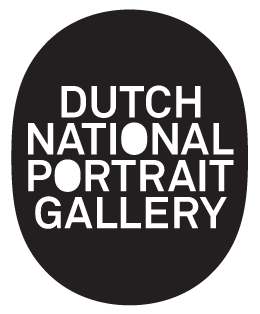©JESPER BOOT, SERIE POWER, 2021/2022
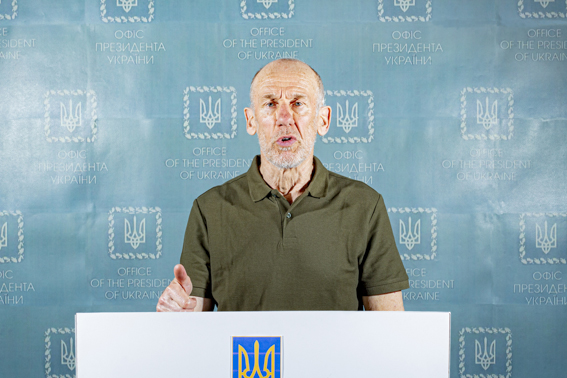
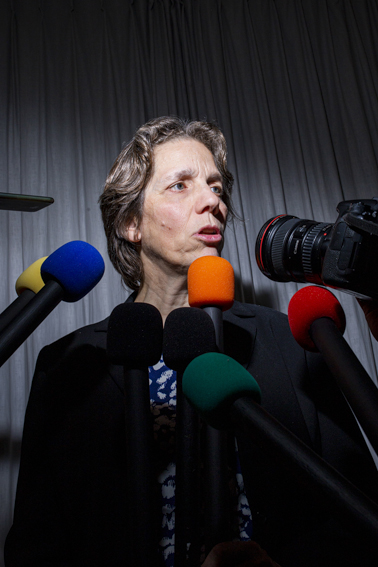
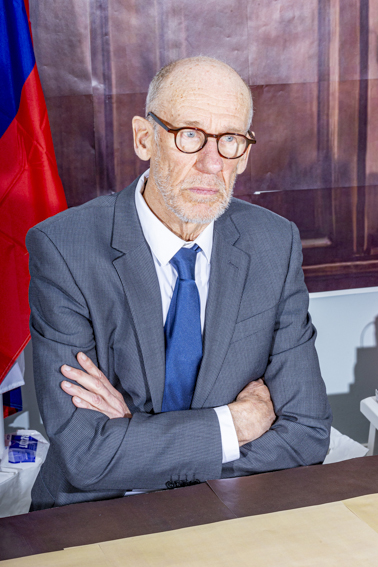
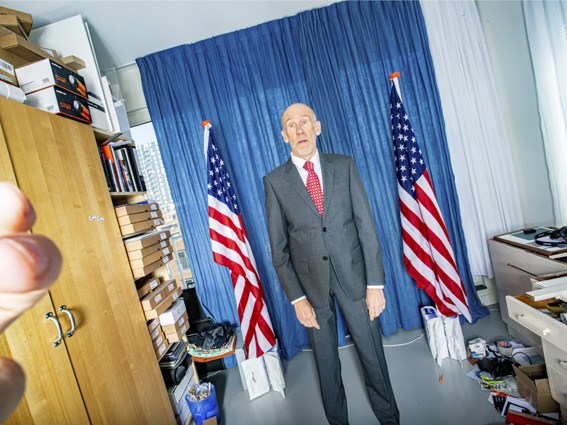
‘Power’ van Jesper Boot (1996) bestaat uit geconstrueerde beelden waarin zijn familie als politieke figuren zijn afgebeeld. Het werk is gebaseerd op hoe macht en politiek al decennialang in de media worden gerepresenteerd en zo in ons collectieve geheugen zijn beland. Door foto’s te laten zien die er bekend uitzien, construeert hij een politiek beeld, dat vervolgens wordt gedeconstrueerd als blijkt dat het geen vertrouwde politici zijn, maar zijn eigen familie.
Jesper Boot’s (1996) ‘Power’ consists of constructed images in which his family are depicted as political figures. The work finds its origin in how power and politics have been represented in the media for decades and have therefore ended up in our collective memories. By showing photos that look familiar, he constructs a political image, which is then deconstructed if it turns out that it is not a trusted politician, but his own family member.
©ANA ZIBELNIK, SERIE IMMORTALITY IS COMMONPLACE, 2022
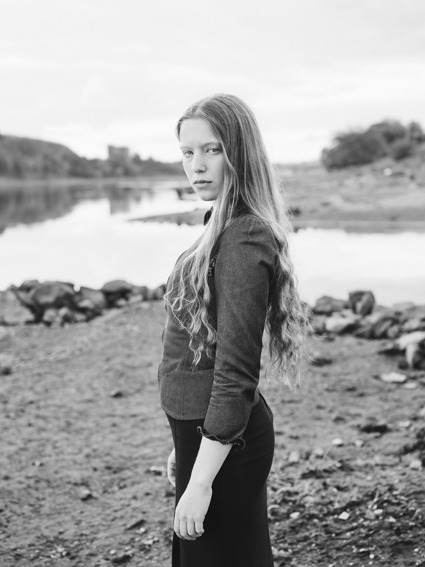
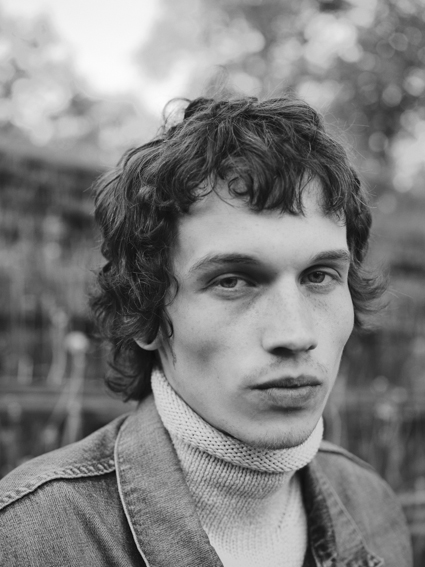
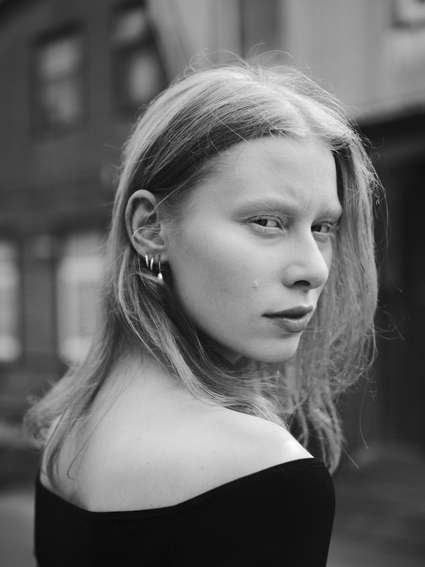
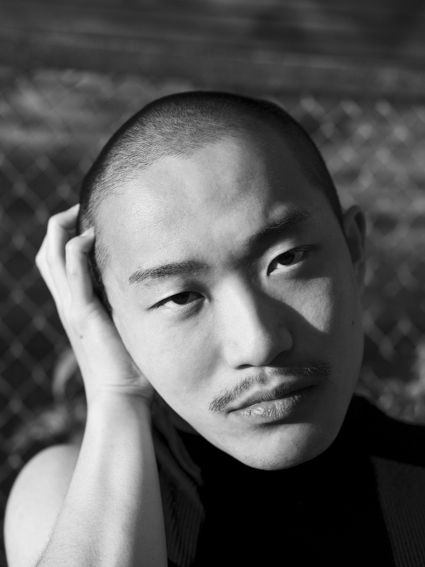
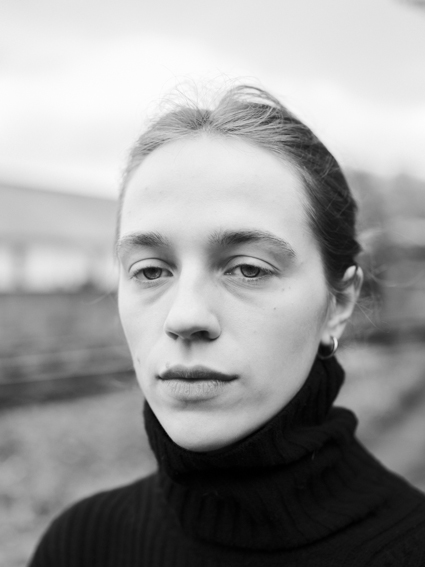
Ana Zibelnik (1995), BA in Visual Communication (Universiteit van Ljubljana), MA in Film & Photographic Studies (Universiteit Leiden). Ze onderzoekt de dood en de perceptie van tijd, reflecterend op de huidige status van mensen als actoren op deze planeet. In ‘Immortality is Commonplace’ duikt ze in de relatie tussen fotografie en uitsterven, waarbij ze de rol van het medium in tijden van ecologische instabiliteit bevraagt. Ze combineert een op onderzoek gebaseerde benadering met poëtische interpretatie, vaak geïnspireerd door literatuur.
Ana Zibelnik (b. 1995), BA in Visual Communication (University of Ljubljana), MA in Film and Photographic Studies (Leiden University). She explores death, longevity and the perception of time, reflecting on the current status of humans as actors on this planet. In ‘Immortality is Commonplace’ she delves into the relationship between photography and extinction, questioning the role of the medium in times of ecological instability. She combines a research based approach with poetic interpretation, often inspired by literature.
©ELIZAR VEERMAN, SERIE MOLUCCAN LEGACIES, 2021
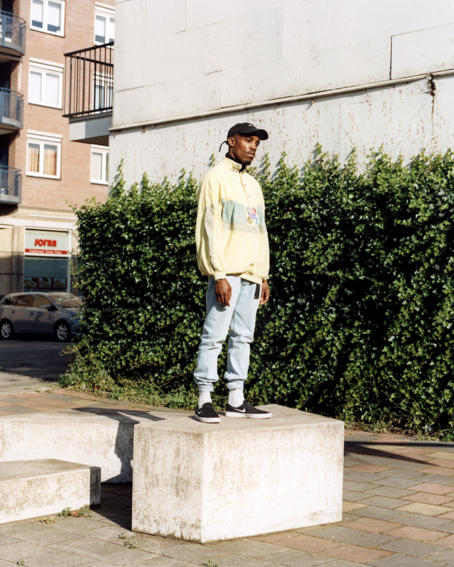
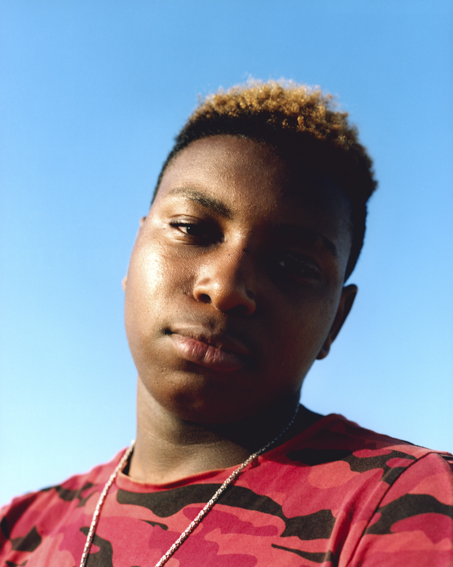
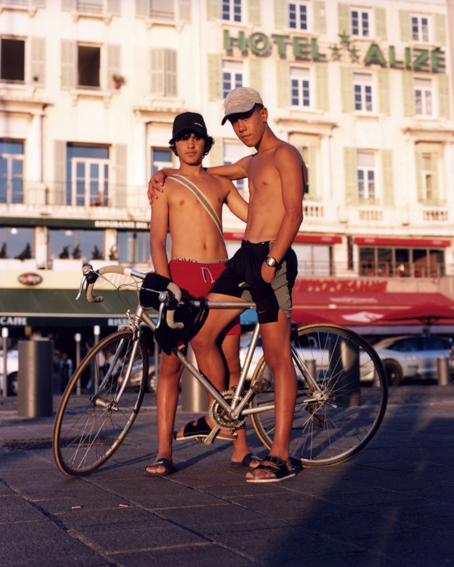
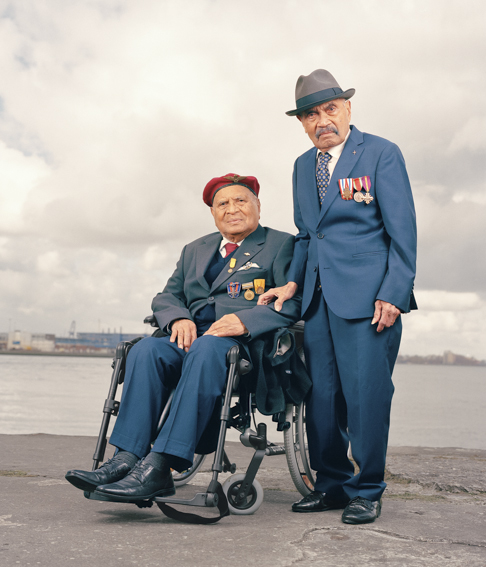
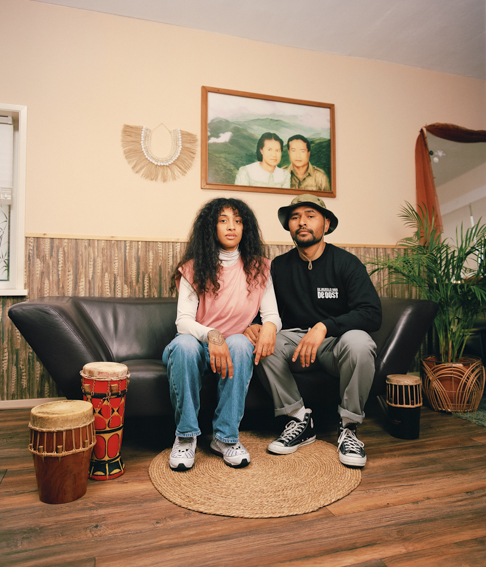
Elizar Veerman (1994) is een Moluks-Nederlandse documentaire- en portretfotograaf gevestigd in Amsterdam. Hij liep stage bij Dana Lixenberg in Amsterdam (2020 – 2021). Hij behaalde zijn BA Documentaire Fotografie aan de Koninklijke Academie van Beeldende Kunsten in Den Haag (2022). In zijn fijn fotografische praktijk houdt hij zich vooral bezig met de effecten van kolonialisme en migratie. Met speciale aandacht voor jongens en mannen met een geschiedenis van ontheemding, onderzoekt hij representaties van mannelijkheid en daden van (zelf)herwinning.
Elizar Veerman (b.1994) is a Moluccan-Dutch documentary and portrait photographer based in Amsterdam. He did an internship with Dana Lixenberg in Amsterdam (2020 – 2021). He obtained his BA in Documentary Photography at the Royal Academy of Art, The Hague (2022). His photographic practice is particularly concerned with the effects of colonialism and migration. Focusing on boys and men with a history of displacement, he explores representations of masculinity and acts of (self-) reclamation.
©HOSSEIN FARDINFARD, SERIE GAME-CHANGER,2021
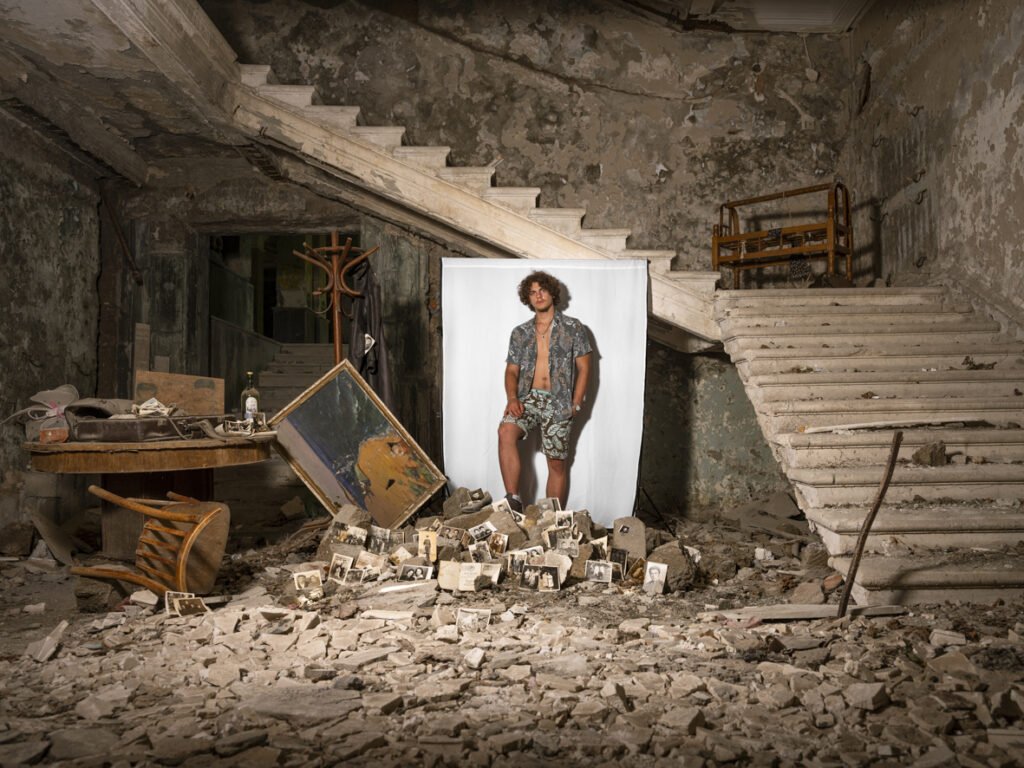
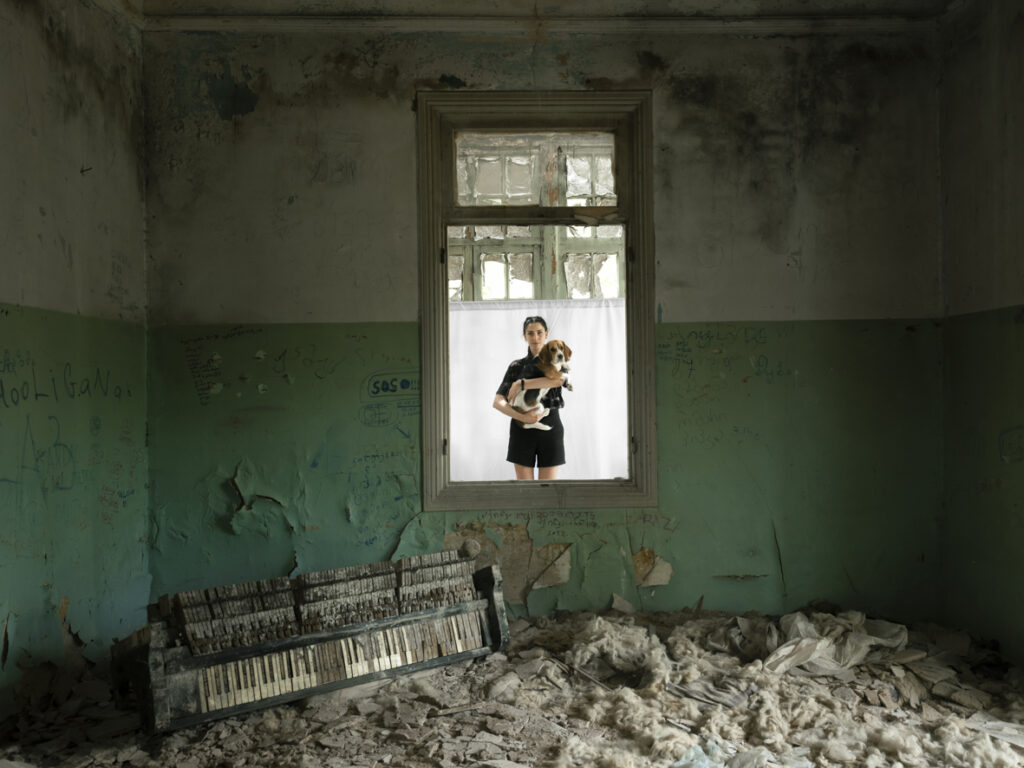
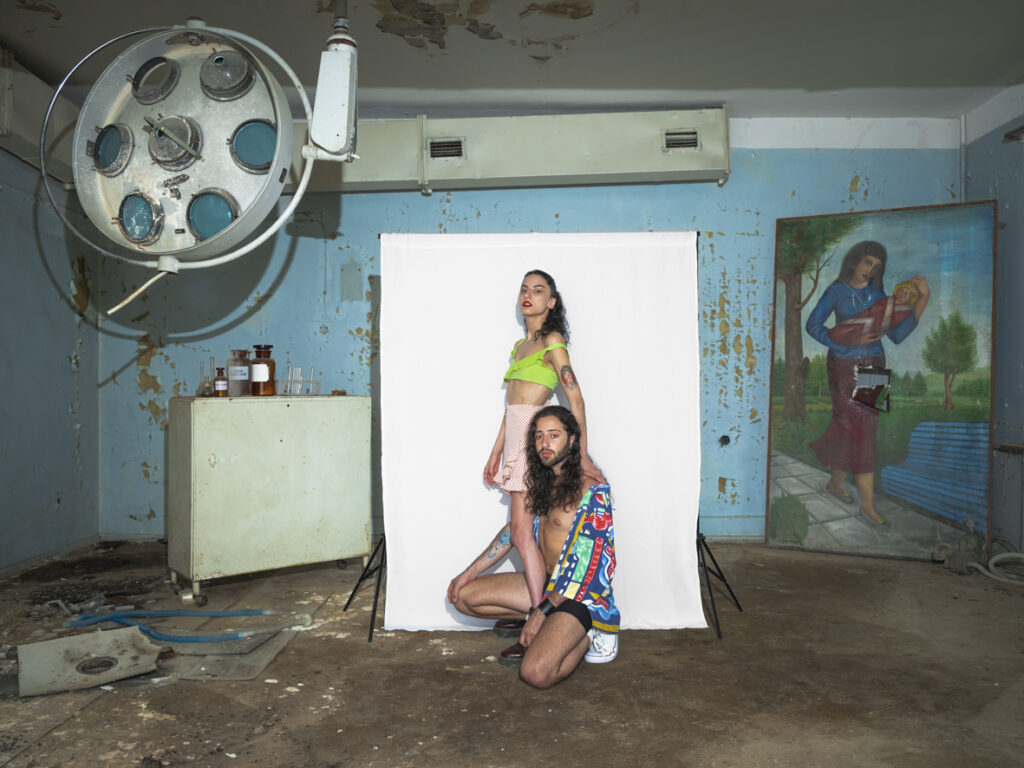
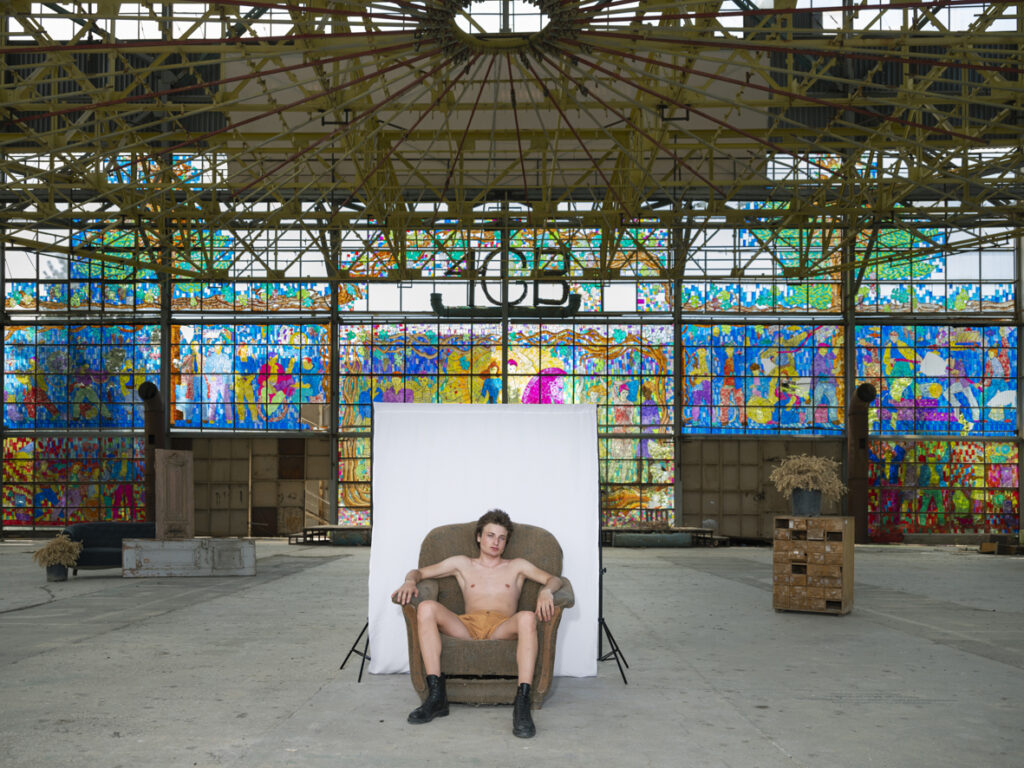
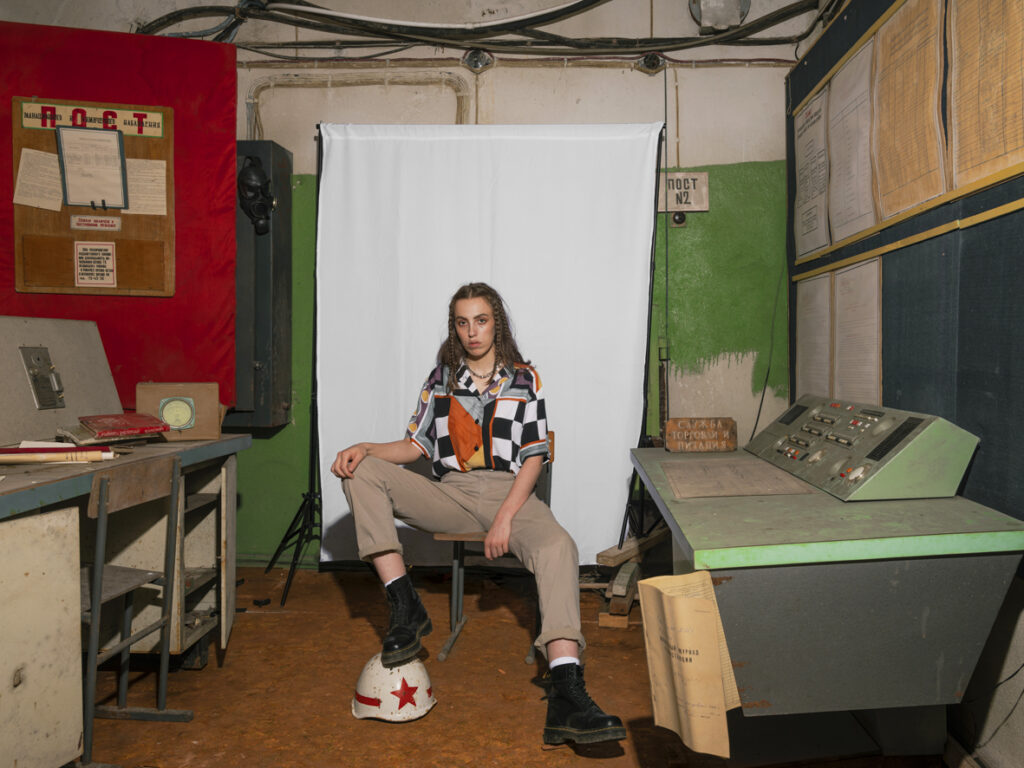
Hossein Fardinfard (1985) fotografeerde een nieuwe generatie in Georgië. Tegen de achtergrond van gebouwen uit de voormalige Sovjetrepubliek plaatste hij ze voor een wit doek. De geportretteerden hebben een nieuwe, moderne manier van denken en zijn geneigd over te stappen op de westerse levensstijl, wat ook een groot “NEE” tegen Rusland betekent. Deze portretten symboliseren de geboorte van deze generatie vanuit het hart van de massieve structuren die ten tijde van de Sovjet-Unie werden gebouwd.
Hossein Fardinfard (1985) photographed a new generation in Georgia. He put them in front of a white canvas against the background of buildings from the former Soviet republic. The people portrayed have a new, modern way of thinking and are inclined to switch to a western lifestyle, which also means a big “NO” to Russia. These portraits symbolise the birth of this generation from the heart of the massive structures built at the time of the Soviet Union.
©INES VANSTEENKISTE-MUYLLE, TALENTS (Froukje, Muylle Daniël Kolf, Leonieke Baerwaldt en Sholeh Rezazadeh), 2021
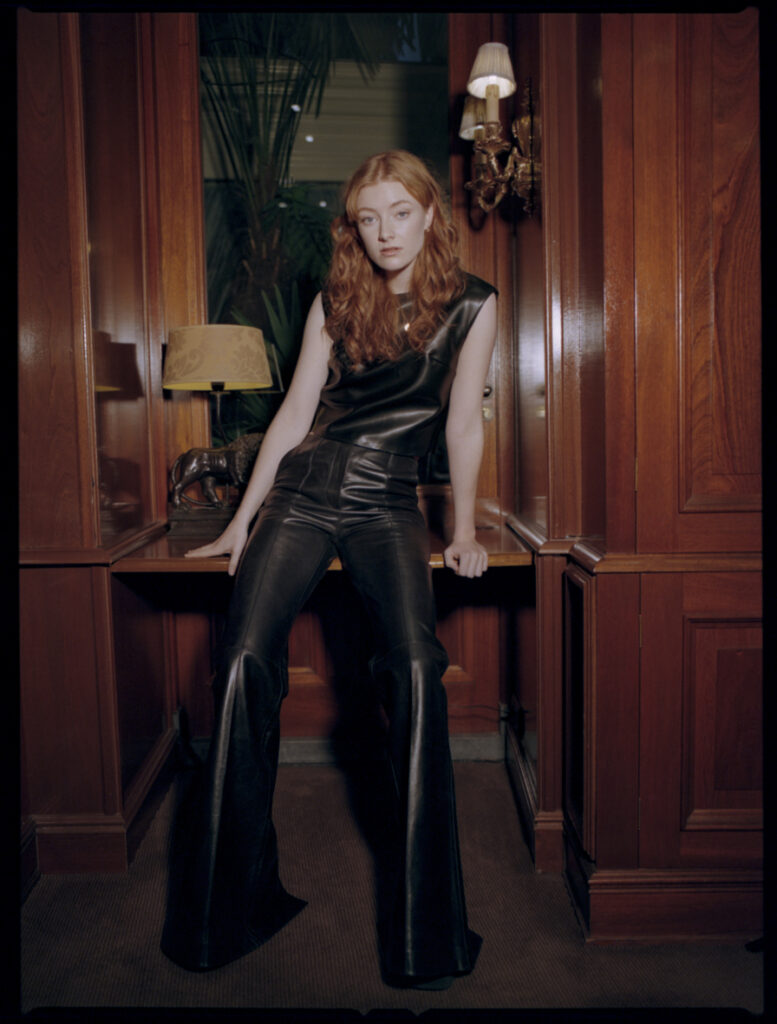
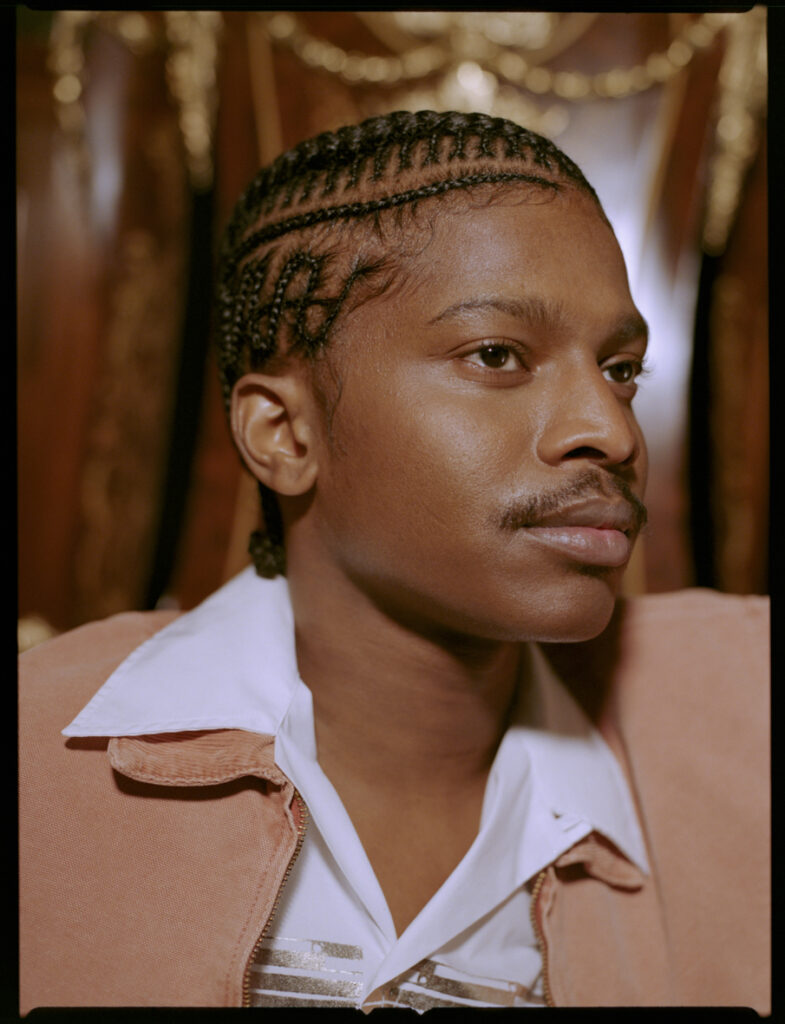
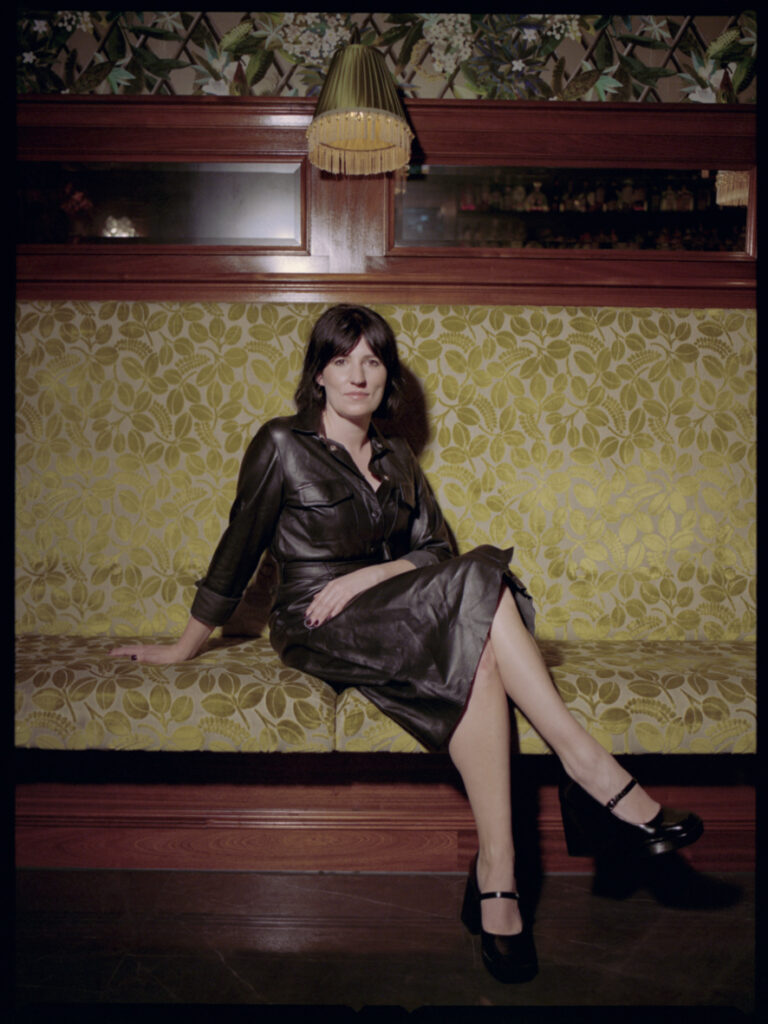
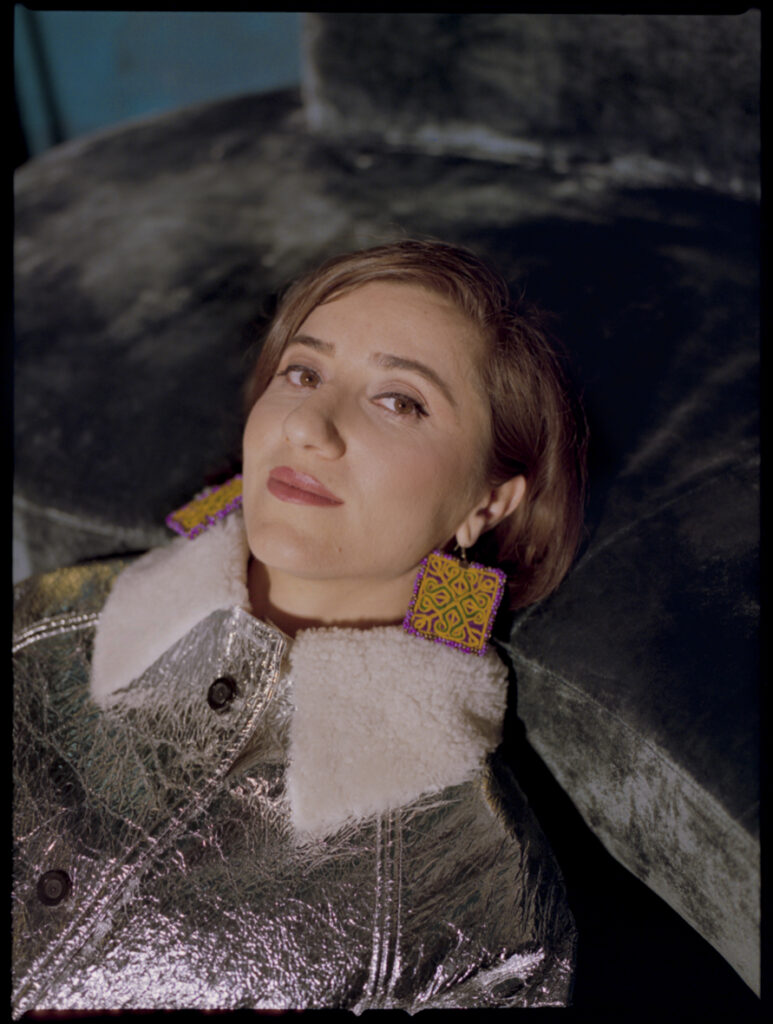
De Belgische Ines Vansteenkiste-Muylle studeerde in 2019 af in Brussel en verhuisde twee jaar later naar Amsterdam om voor de Volkskrant te gaan werken. Ze combineert haar liefde voor mode met maatschappelijk betrokken onderwerpen. Naast perswerk doet ze commerciële en modefotografie. Haar werk werd tentoongesteld in FOMU Antwerpen, Recyclart Brussel en Les Rencontres d’Arles. In deze voor de Volkskrant gemaakte serie stonden Nederlandse jonge talenten op het gebied van muziek, schrijven en acteren centraal.
Belgian photographer Ines Vansteenkiste-Muylle graduated in 2019 in Brussels and moved to Amsterdam two years later to work for de Volkskrant. She combines her love for fashion with socially engaged subjects. Apart from press work, she does commercial and fashion photography. Her work has been showcased at FOMU Antwerp, Recyclart Brussels and Les Rencontres d’Arles. This series made for de Volkskrant featured Dutch young talents in the field of music, writing and acting.
©LAURA CHEN, SERIE WORDS FROM DAD, 2021
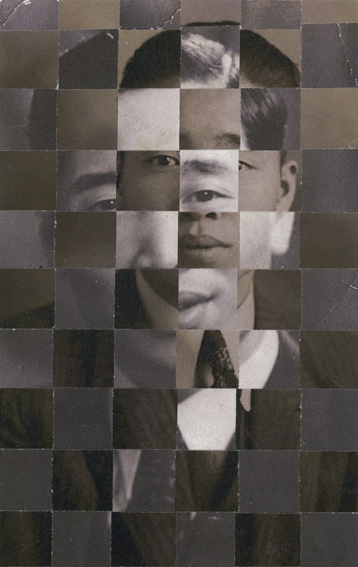
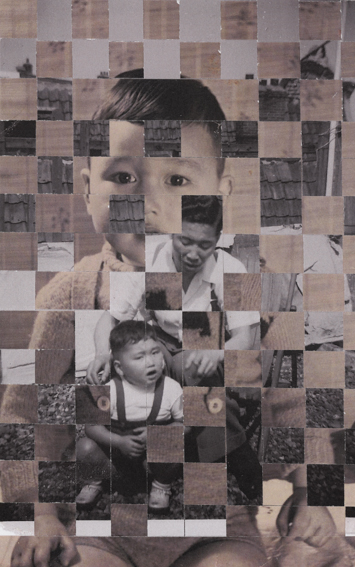
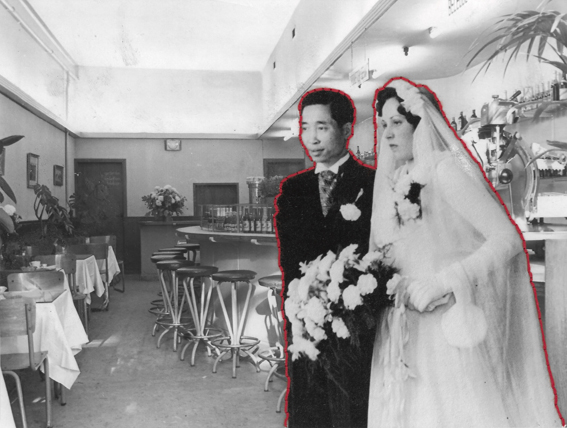
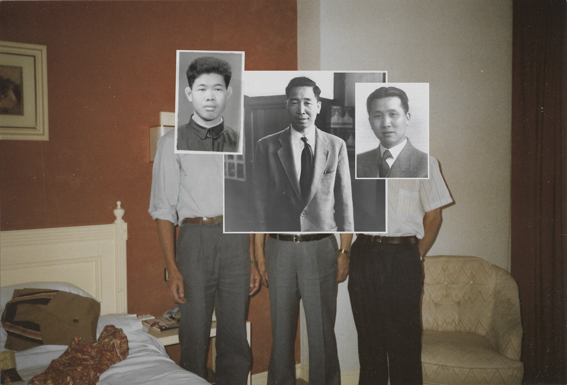
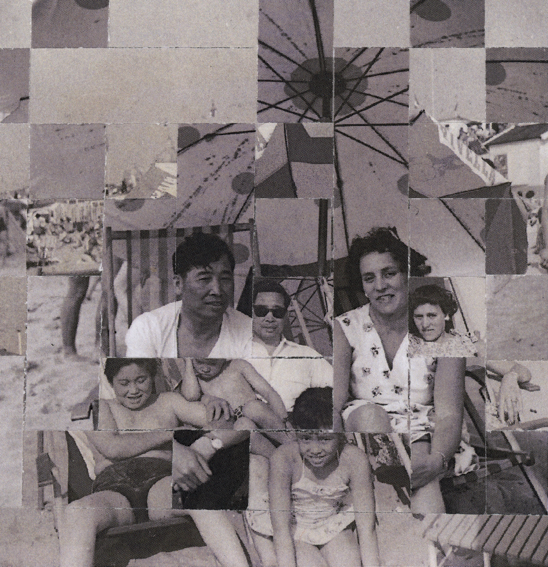
Laura Chen (1997) heeft haar grootvader, Tek Suan Chen, nooit gekend. Hij kwam vanuit China naar Nederland. Zijn Nederlandse voornaam was Peter. De verhalen van haar vader over haar opa boeiden Laura zeer; over de aanpassing aan een nieuwe (westerse) cultuur en over de multiculturele opvoeding die hij haar vader gaf. In haar fotomontages laat ze de Chinese en Nederlandse cultuur versmelten tot een nieuwe identiteit. Ze naait meerdere beelden aan elkaar en vormt zo een reeks familieportretten.
Laura Chen (b. 1997) never knew her grandfather, Tek Suan Chen. Her father’s stories about him intrigued her; about adaptatie to a new (Western) culture and about the multicultural upbringing of her father. For example, her grandfather also had a Dutch first name: Peter. In her photomontages, she merges Chinese and Dutch culture into a new identity. She sews several images together to create a series of family portraits.
©MARYSIA SWIETLICKA, Untitled (Rick, Isa, Irem), 2022
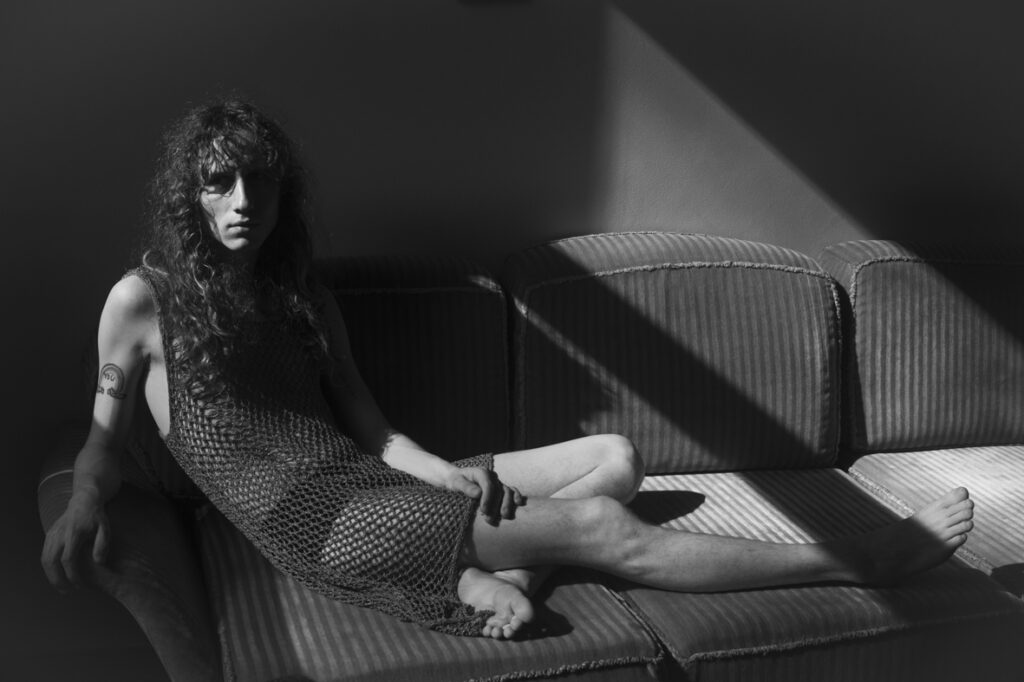
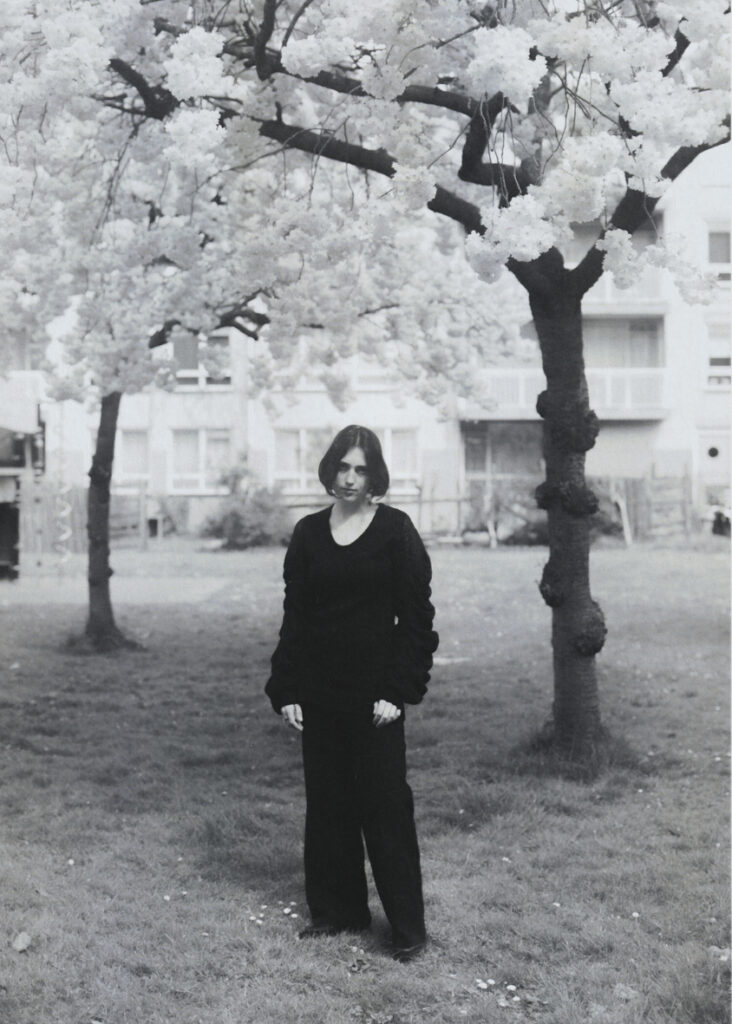
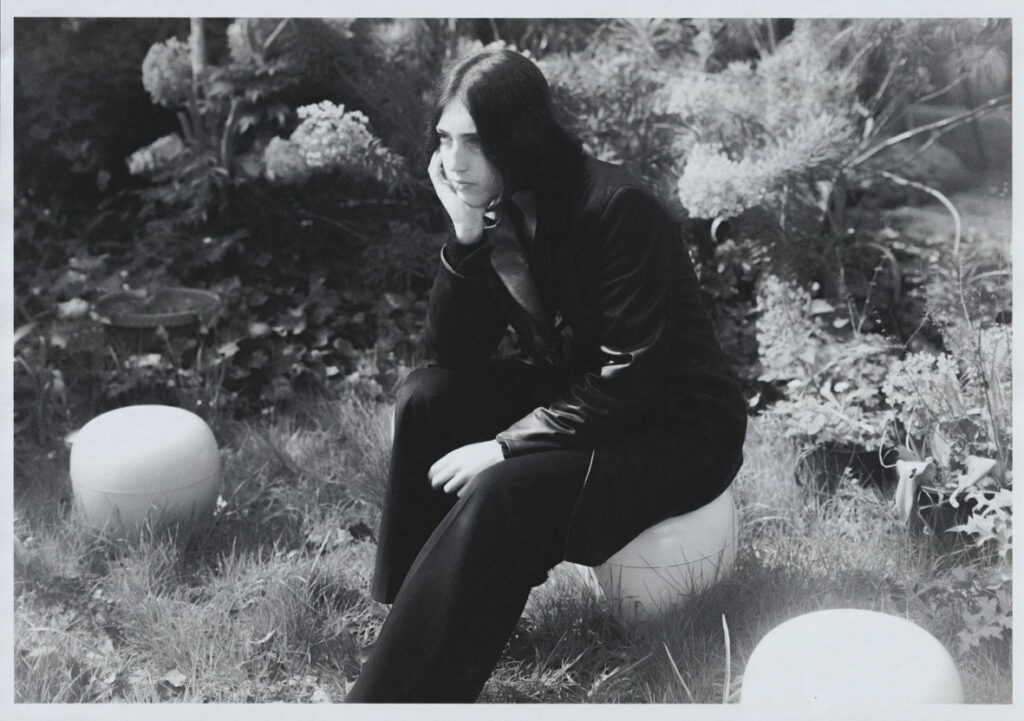
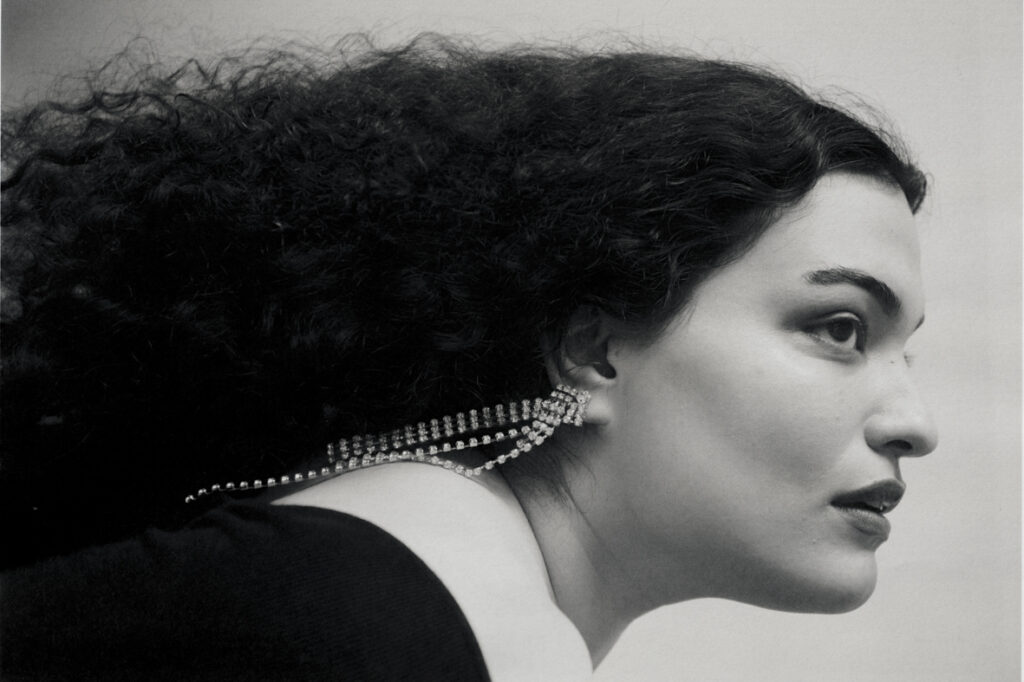
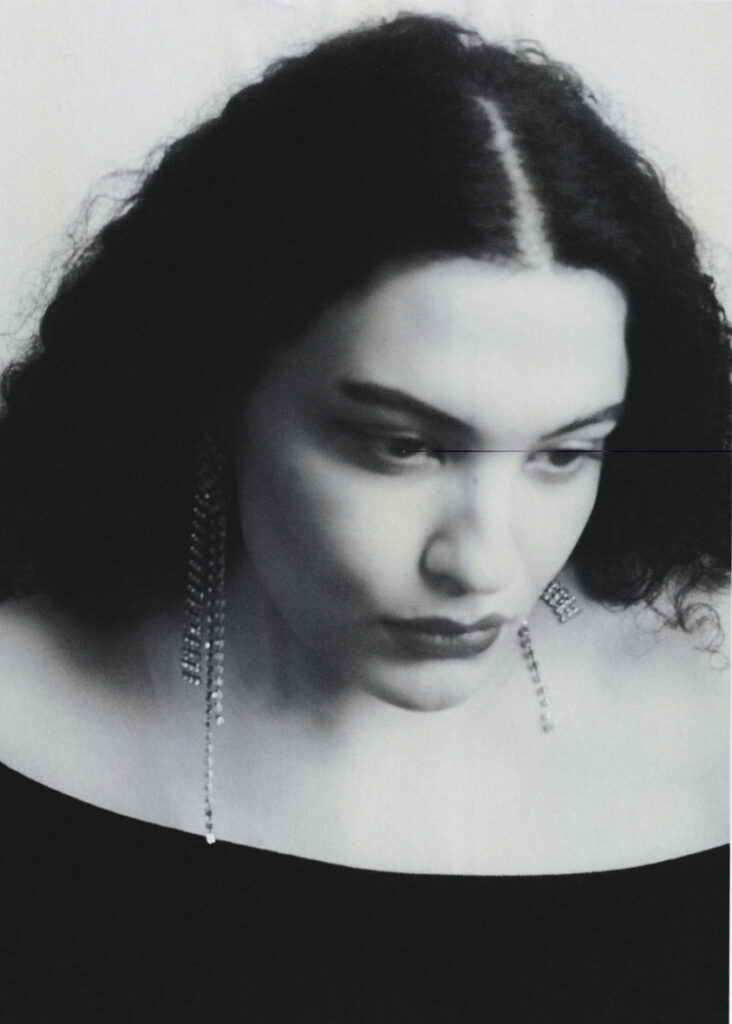
Marysia Swietlicka (1997) is een in Warschau geboren fotograaf die nu in Nederland woont. Ze studeerde af aan de Haagse KABK met een Bachelor in fotografie. In haar werk confronteert ze zichzelf bewust met de intimiteit van het onaangename. Het vertalen van ervaring en herinneringen naar visuele representaties is haar benadering om normatief gedrag en de individuele grenzen van het privédomein te onderzoeken. Haar fotografische verhalen vormen een associatief en dubbelzinnig netwerk.
Marysia Swietlicka (1997) is a Warsaw born photographer who now lives in The Netherlands. She graduated from the Royal Academy of Art with a Bachelor in photography. In her work she consciously confronts herself with the intimacy of the unpleasant. Translating experience and memory into visual representations is her approach to investigate normative behaviour and individual borders of the private. The photographic narratives she builds outline an allusive and ambiguous network of associations.
©PATRICK HUDEPOHL, SERIE SELF PORTRAITS, 2021/2022
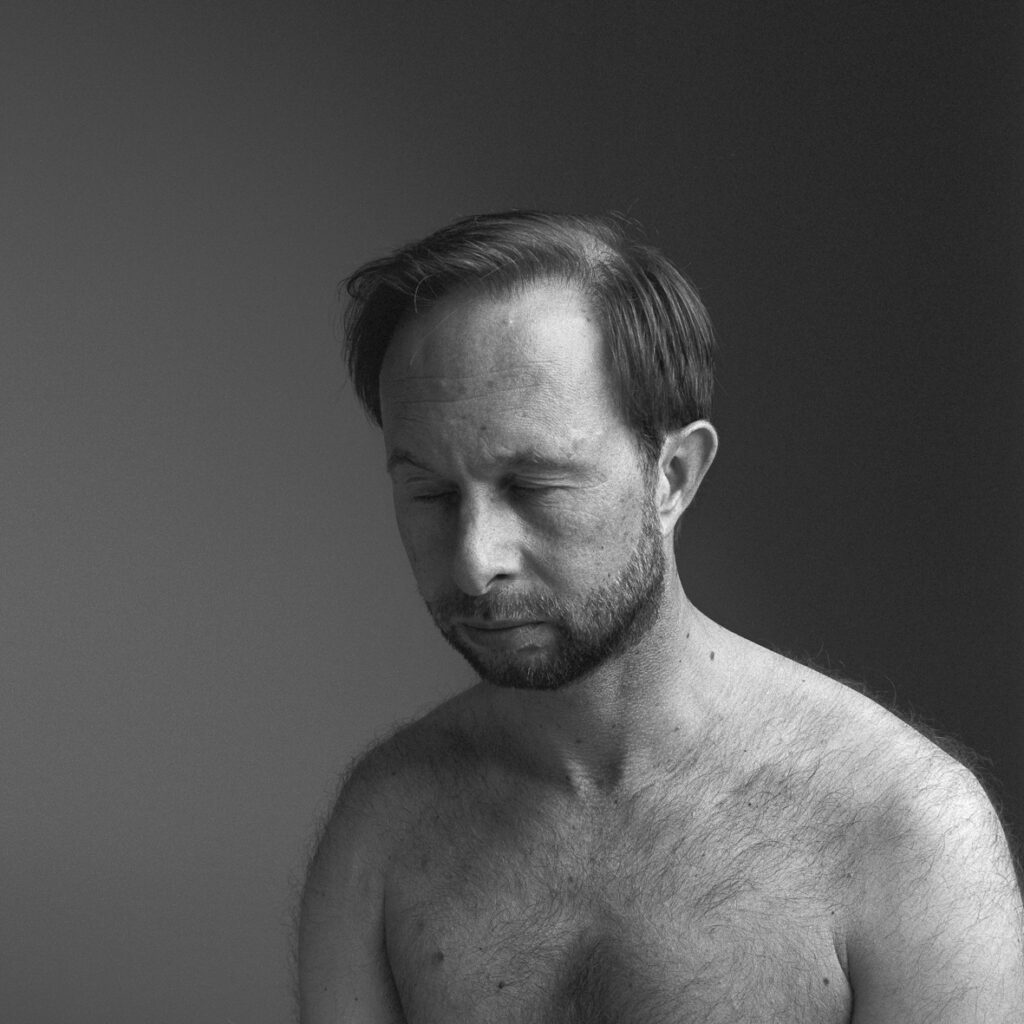
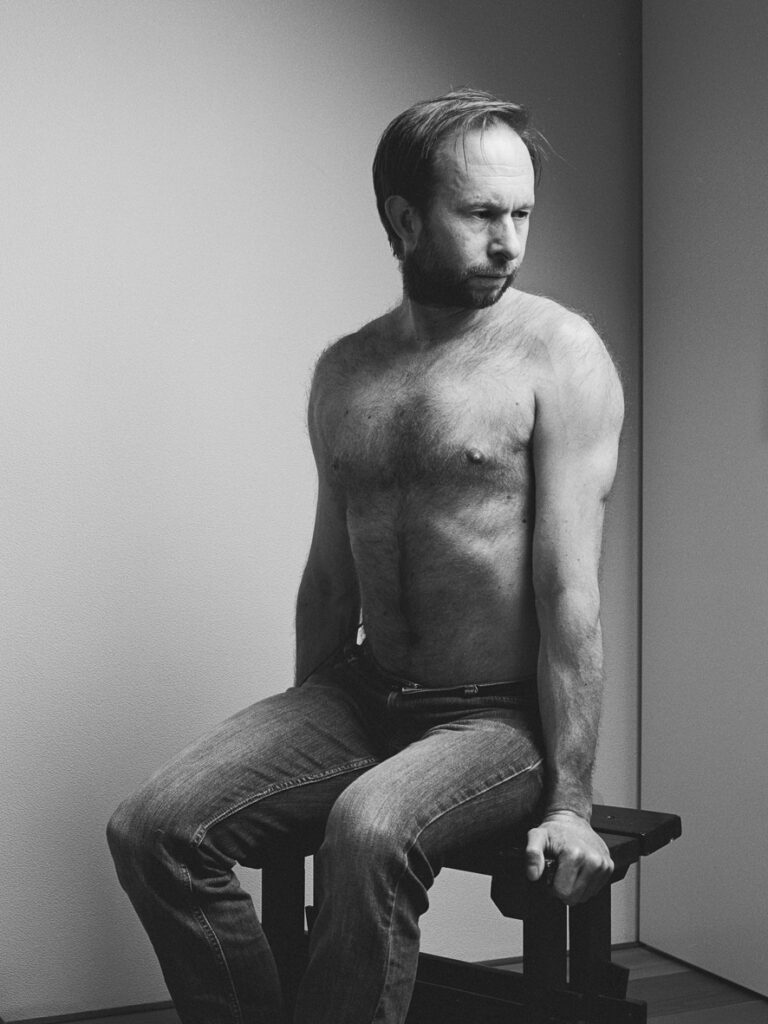
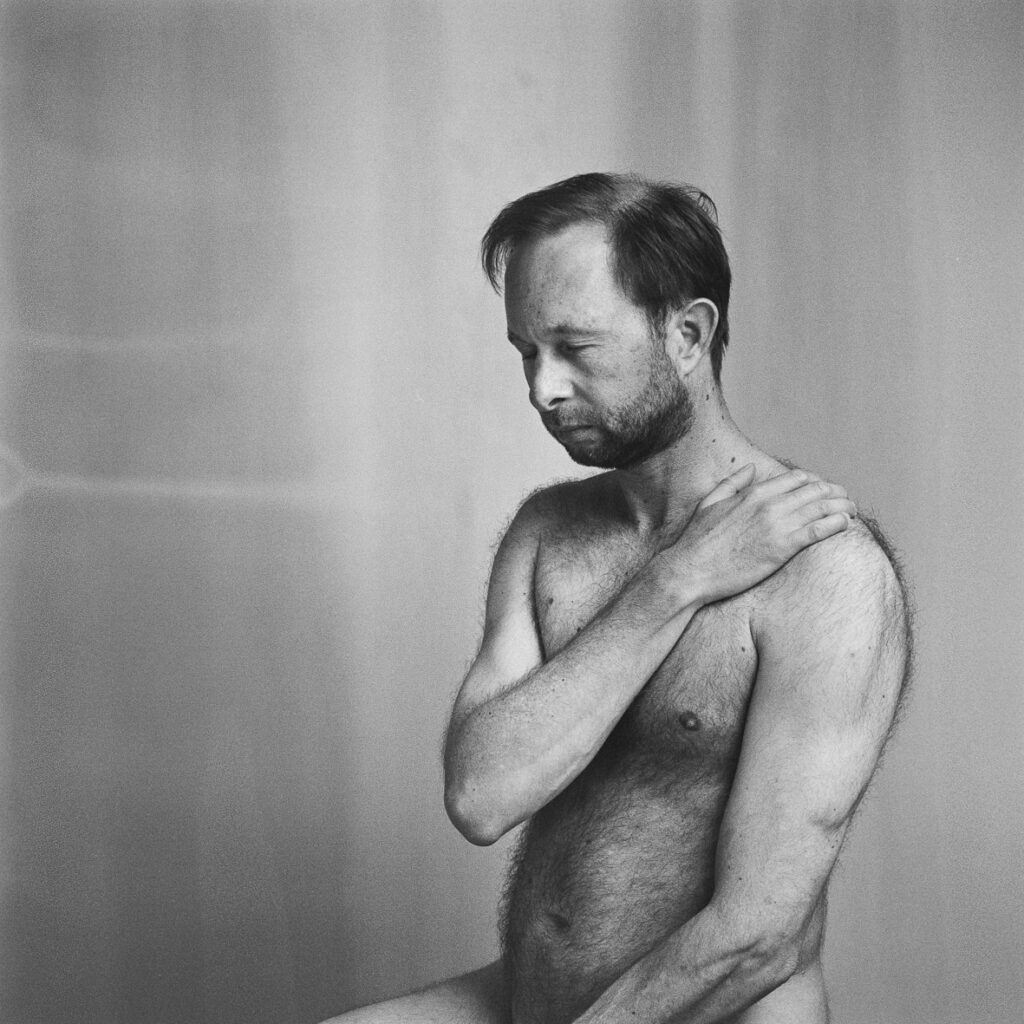
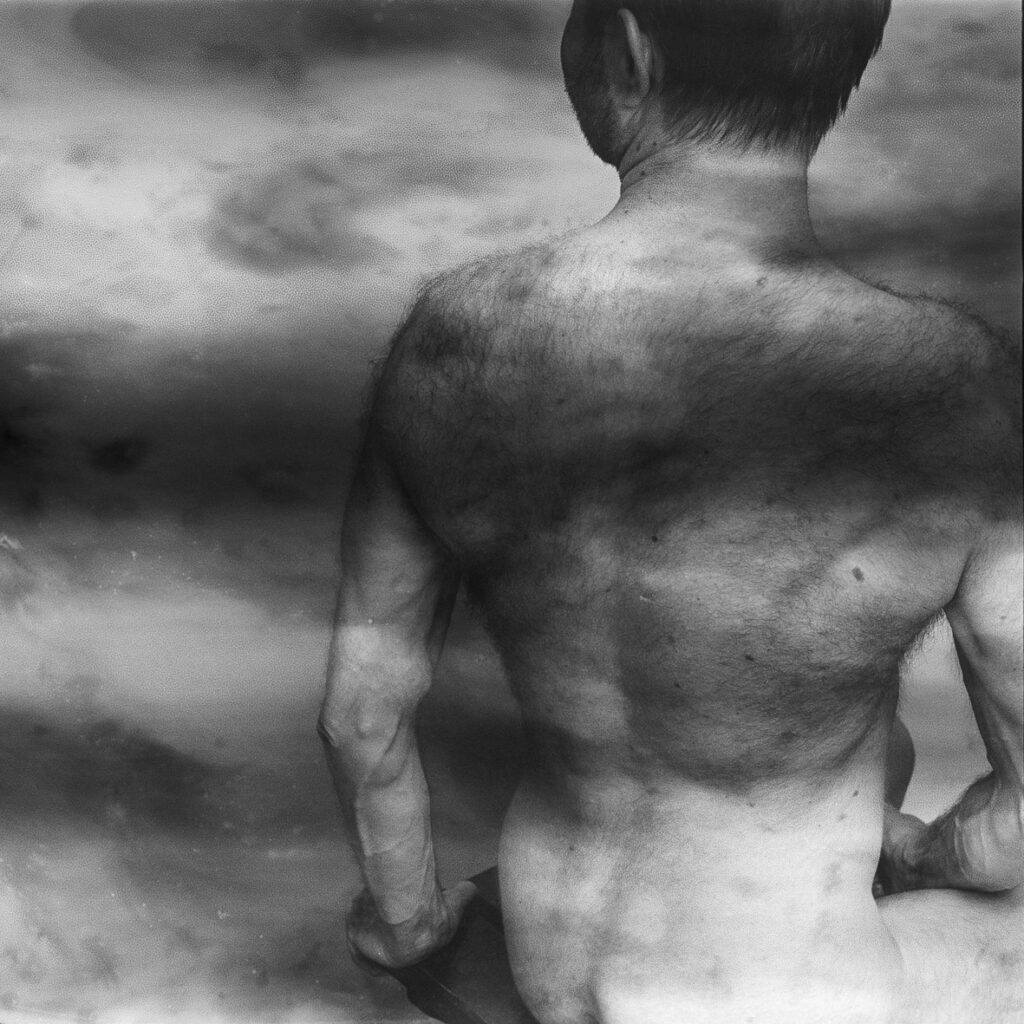

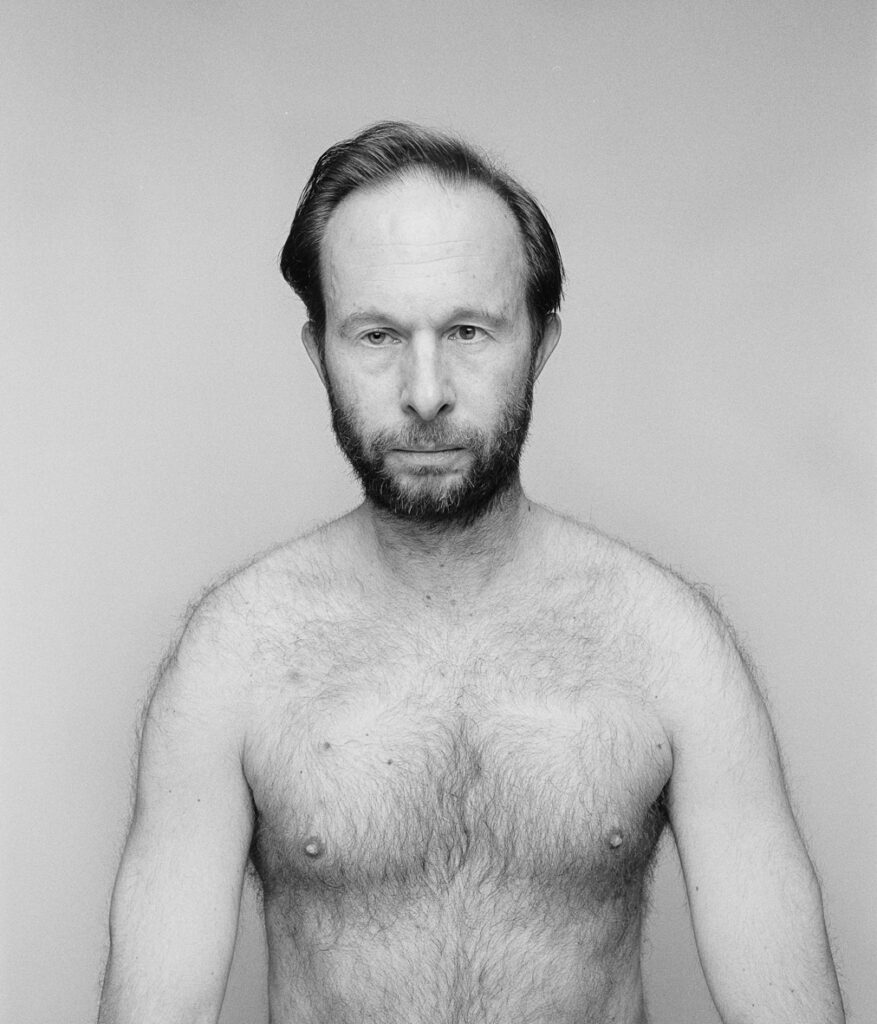
Het werk van Patrick Hudepohl (1974) werk gaat over mannelijkheid, volwassen worden en over de gevolgen als die ontwikkeling verstoord raakt. Hoe beïnvloedt dat op je blik op de wereld, je plaats in de maatschappij? Zijn die gevolgen in portretten en houdingen zichtbaar te maken als er ogenschijnlijk niets aan de hand is? Hudepohl fotografeert analoog en grijpt in op het chemische ontwikkelproces, zoals een aandoening dat ook op lichamelijke en emotionele ontwikkeling doet.
Patrick Hudepohl’s (1974) work is about masculinity, growing up and the consequences if that development is disrupted. How does that affect one’s view of the world, a place in society? Can these consequences be made visible in portraits and postures when everything appears to be fine? In Hudepohl’s analogue photography he intervenes in the chemical development process, just like a condition affects physical and emotional development.
©SAM WARNAAR, SERIE CONTACT
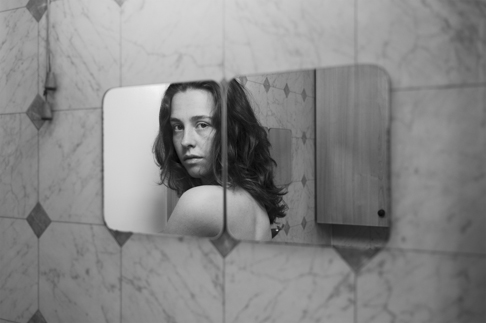
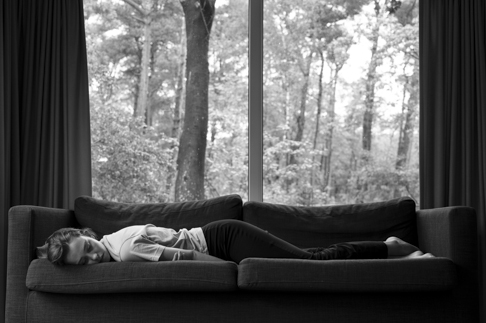
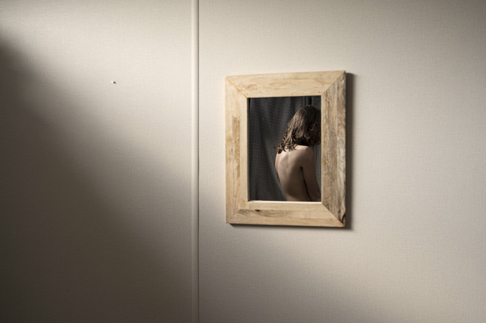
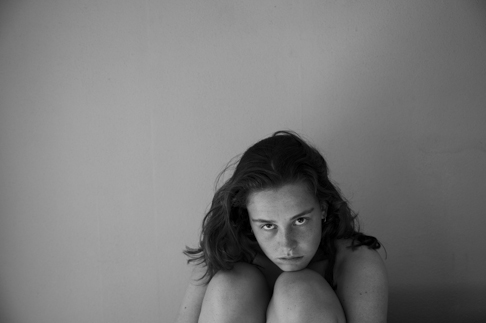
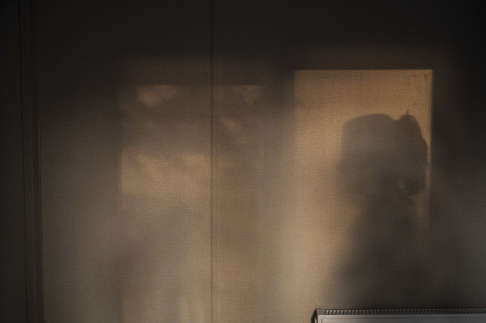
Sam Warnaar studeerde in 2021 af aan de Nederlandse Academie voor Beeldcreatie. Haar mobiele telefoon creëerde een continue prikkel en drang tot menselijk contact en bevestiging. Voor haar project
‘Contact’ stopte ze drie keer een week met alle sociale contacten, muziek, televisie en boeken. Alleen Warnaar met haar camera in een huisje in de natuur. ‘Contact’ is haar foto- en videoproject over zelfacceptatie, zonder daar anderen voor nodig te
hebben. Wat blijft over als al het contact wegvalt? Welke keuzes maak je dan? Wat vind je zelf?
Sam Warnaar graduated from the Dutch Academy of Visual Creation in 2021. Her mobile phone created a continuous stimulus and urge for human contact and confirmation. For her project ‘Contact’ she gave up all social contacts, music, television and books for three periods of one week. Just Warnaar with her camera in a secluded house. ‘Contact’ is her photo and video project about
self-acceptance, without needing others. What remains when all contact is lost? What choices do you make? What do you really think?
©SANDER COERS, Serie Blue Mood (Al Mar), 2021/2022
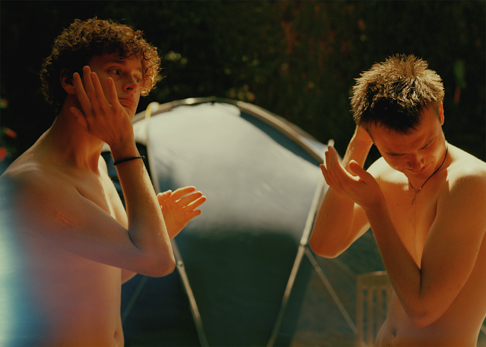
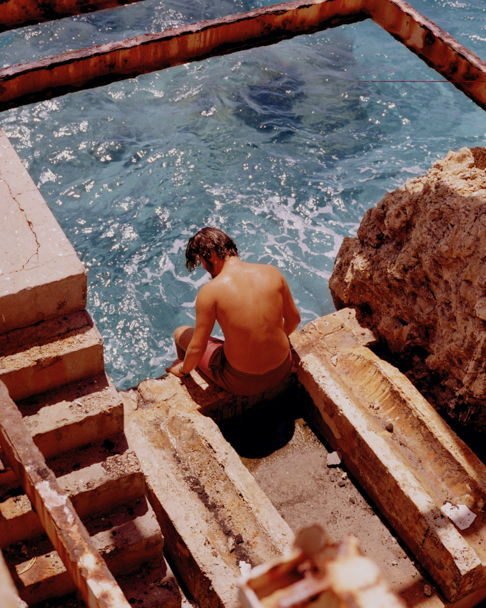
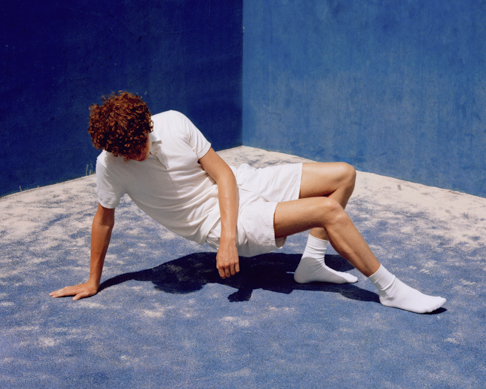
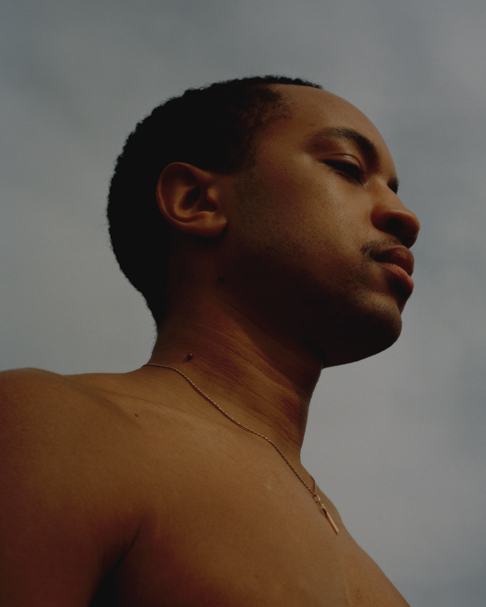
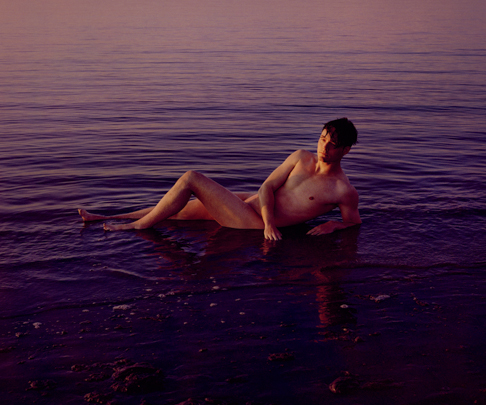
Het werk van Sander Coers draait om het visualiseren van herinneringen die worden opgeroepen door nostalgische echo’s van zwoele zomerdagen uit zijn jeugd. Door middel van kleurrijke en verleidelijke beelden creëert hij stemmige, romantische en droomachtige taferelen die reflecteren op zijn eigen verhalen en die van zijn (mannelijke) vrienden en tijdgenoten. Een visueel essay over zelfacceptatie, transformatie naar volwassenheid en het vinden van liefde.
Sander Coers’ work is about visualising memories evoked by nostalgic echoes of sultry summer days from his youth. Using colourful and seductive images, he creates moody, romantic and dreamlike realities that reflect on his personal stories and those of his (male) friends and contemporaries. A visual essay on self-acceptance, transformation into adulthood and finding love.
